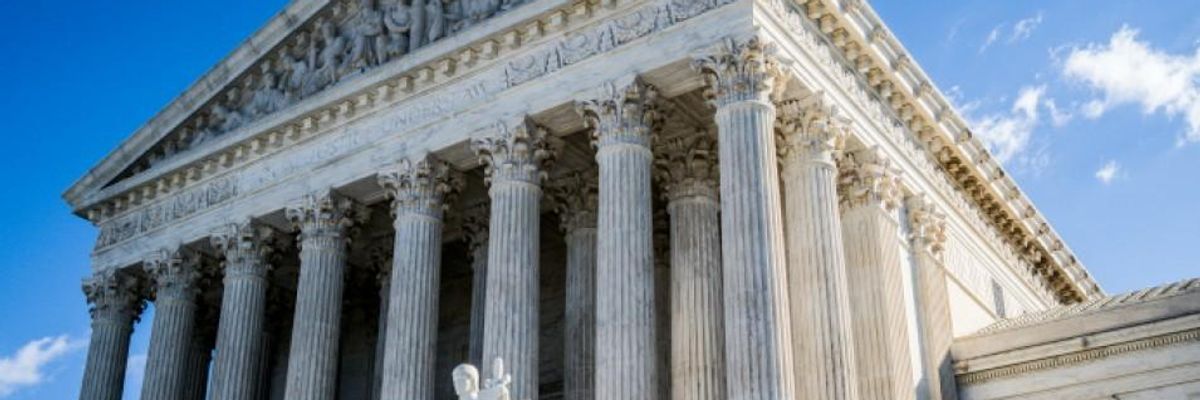In a development hailed as "victory," the U.S. Supreme Court on Monday declined to hear a case that sought to prevent Medicaid patients from accessing key healthcare services from Planned Parenthood.
By rejecting (pdf) the appeals from Kansas and Louisiana, the court leaves in place lower court rulings that bar the states from blocking Planned Parenthood as a Medicaid healthcare provider option to access services including contraception, wellness exams, and breast and cervical cancer screenings.
In the 6-3 decision, it was Justices Clarence Thomas, Samuel Alito, and Neil Gorsuch who dissented, saying the high court should have taken up the cases. Notably, conservatives Chief Justice John Roberts and Justice Brett Kavanaugh joined the liberal justices in refusing to hear the challenges.
"Today's decision affirms that Louisianans can continue to rely on Planned Parenthood, their trusted healthcare provider. We will do everything we can to ensure our patient and the people who need healthcare will always have a place to turn--no matter what," said Melaney A. Linton, president of Planned Parenthood Gulf Coast in a statement.
As NPRreports,
The genesis of this case goes back to the discredited videos purporting to show Planned Parenthood officials inappropriately looking to sell fetal parts. After the videos, Louisiana and Kansas moved to block people from using Medicaid funds for Planned Parenthood services. Planned Parenthood sued, and lower courts ruled in favor of Planned Parenthood.
Yet, as Reutersnotes,
Legal battles over other laws from Republican-led states could reach the court in the next year or two. Some seek to ban abortions in early pregnancy, including Iowa's prohibition after a fetal heartbeat is detected. Others impose difficult-to-meet regulations on abortion providers such as having formal ties, called admitting privileges, at a local hospital.
Noting such challenges, Rep. Barbara Lee (D-Calif.) said of today's decision, "This is an incredible victory, but we must keep fighting to protect #ReproRights. We cannot and will not go back."

